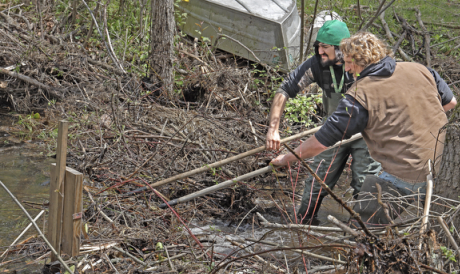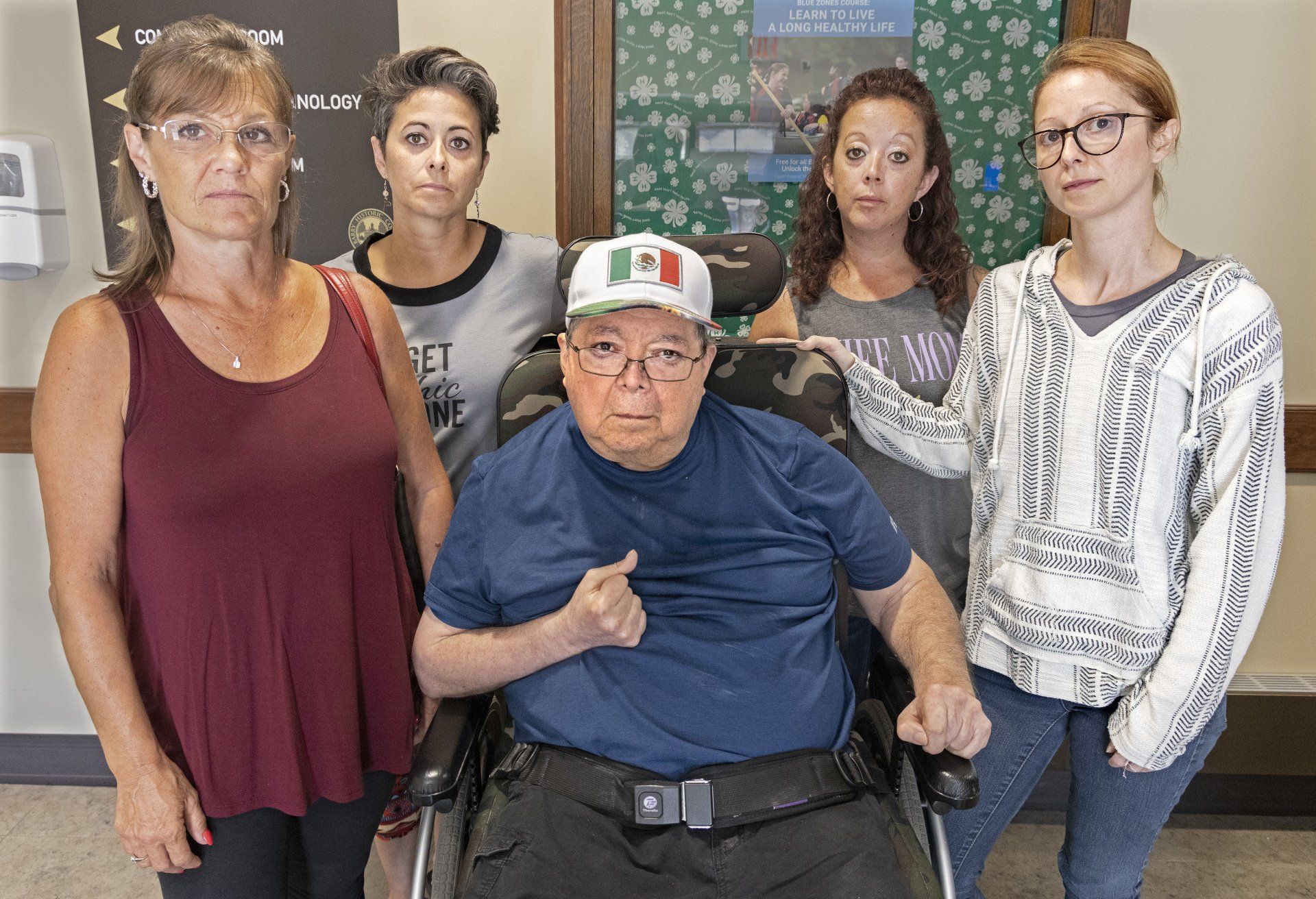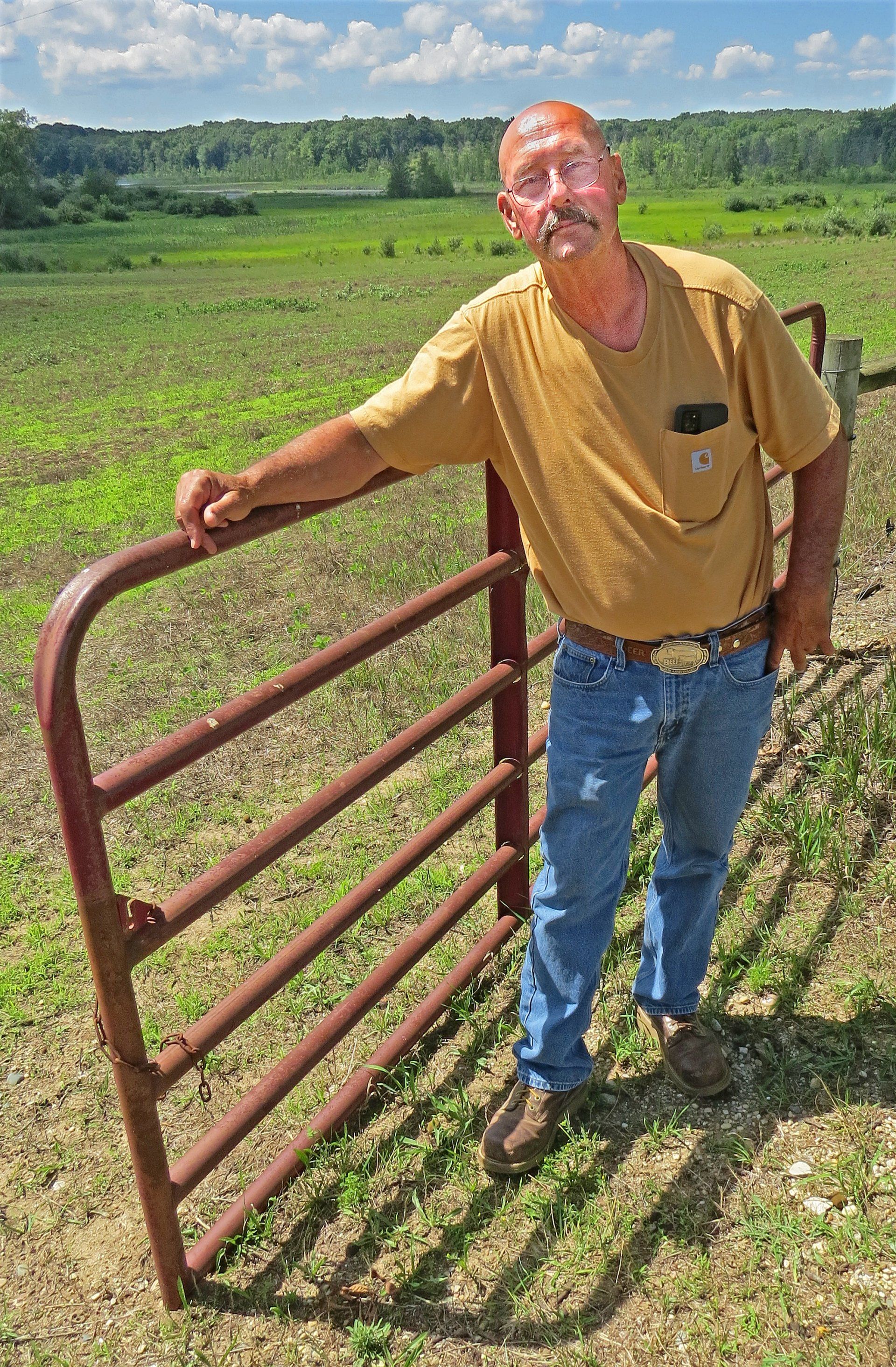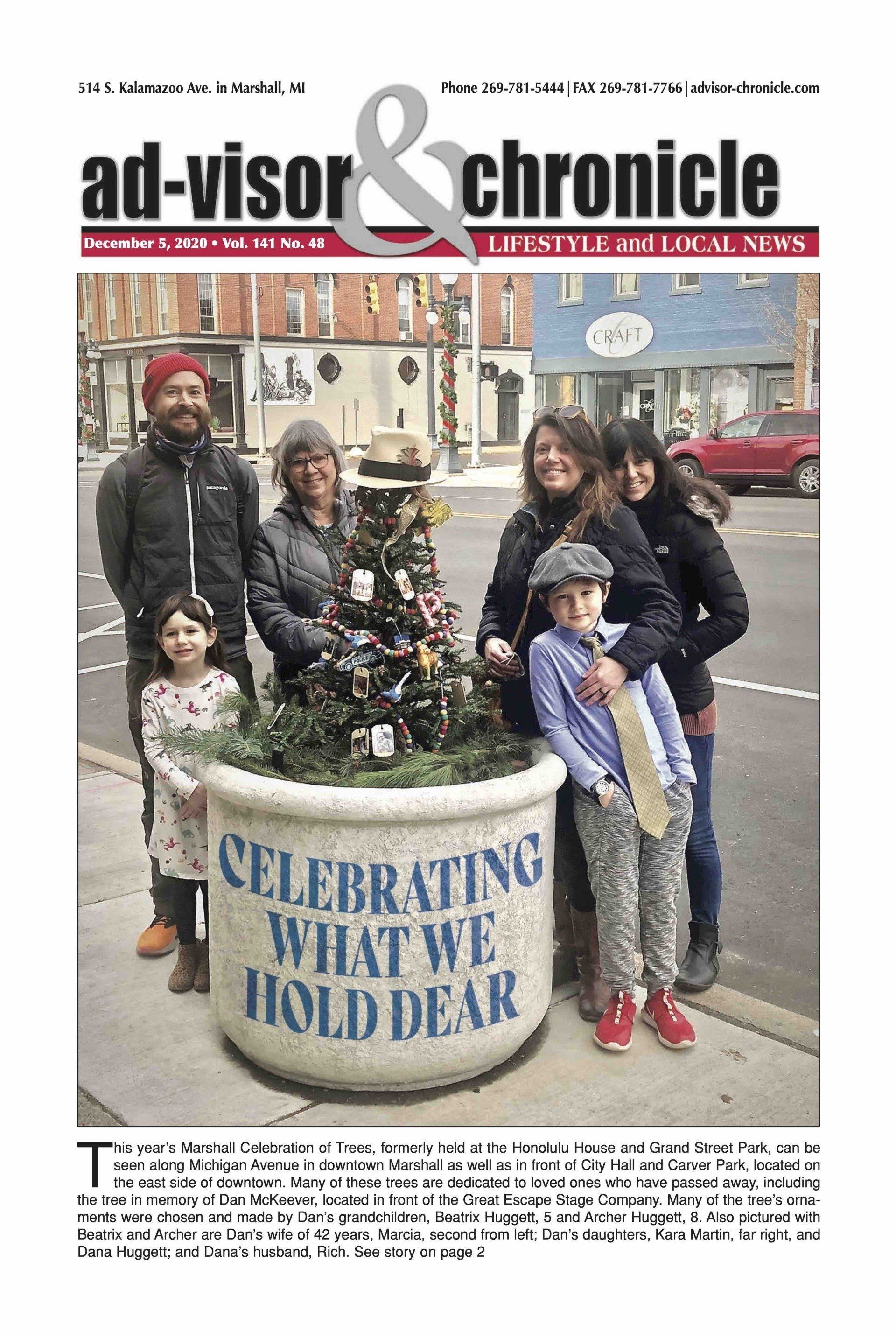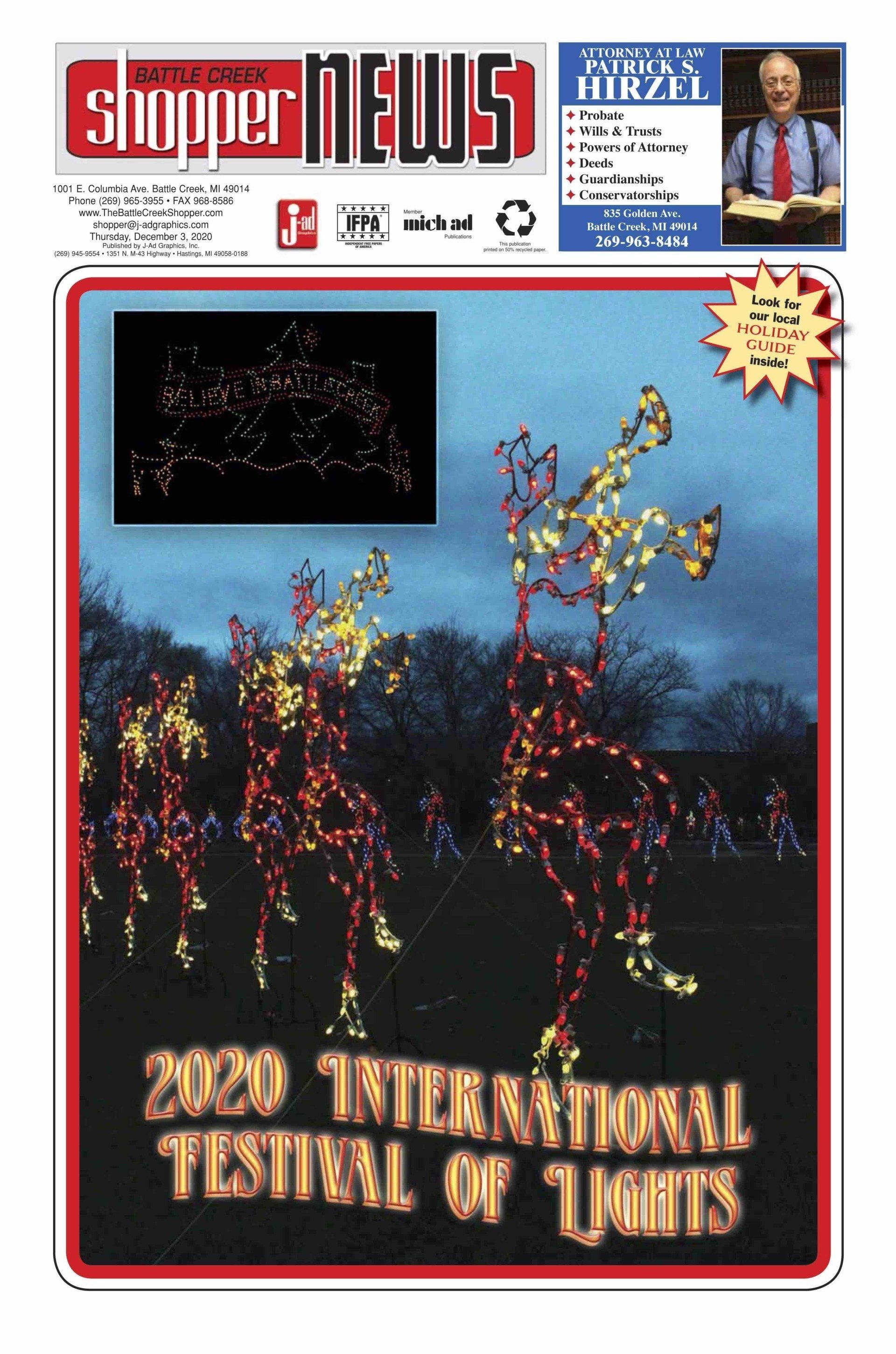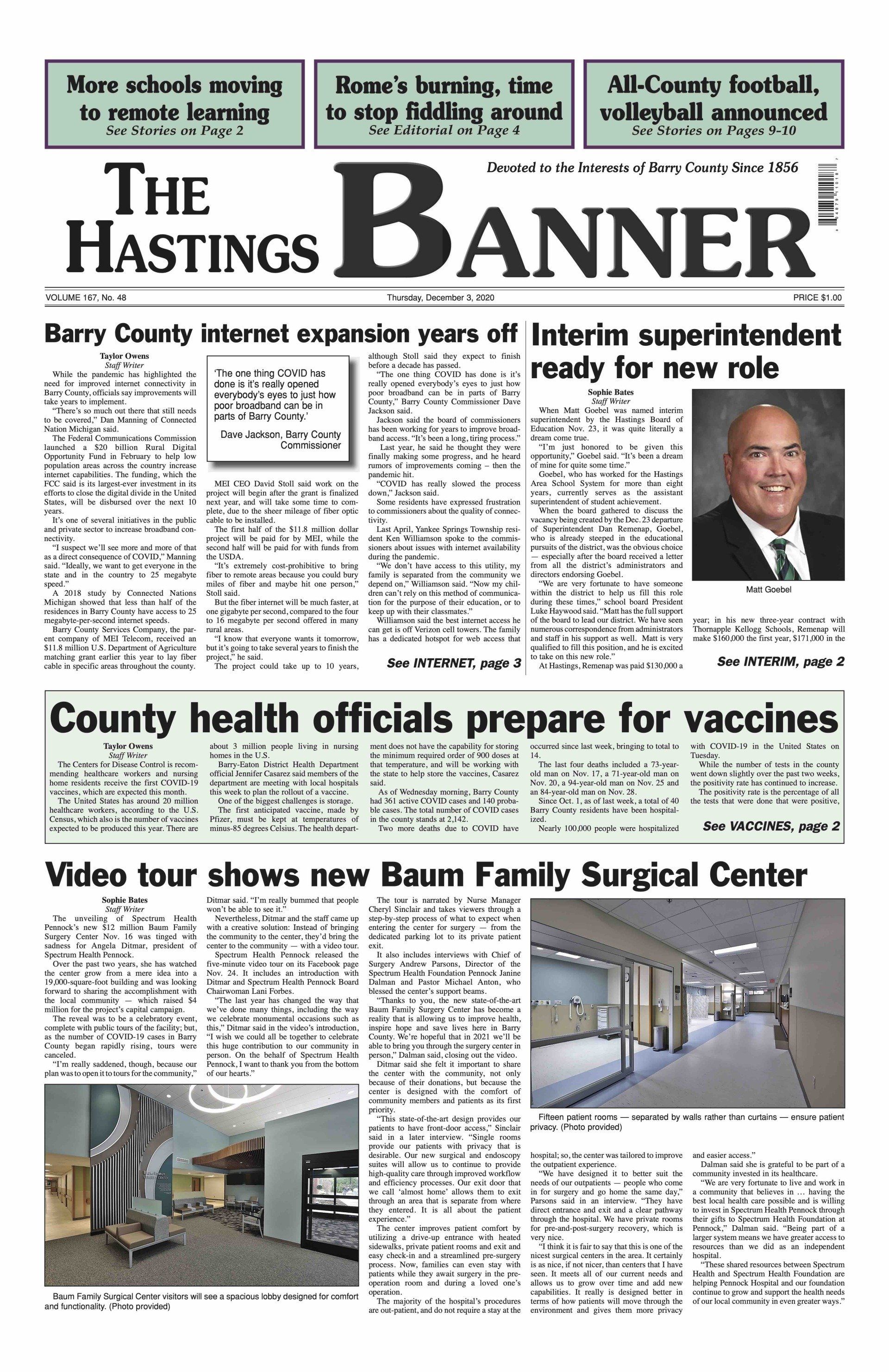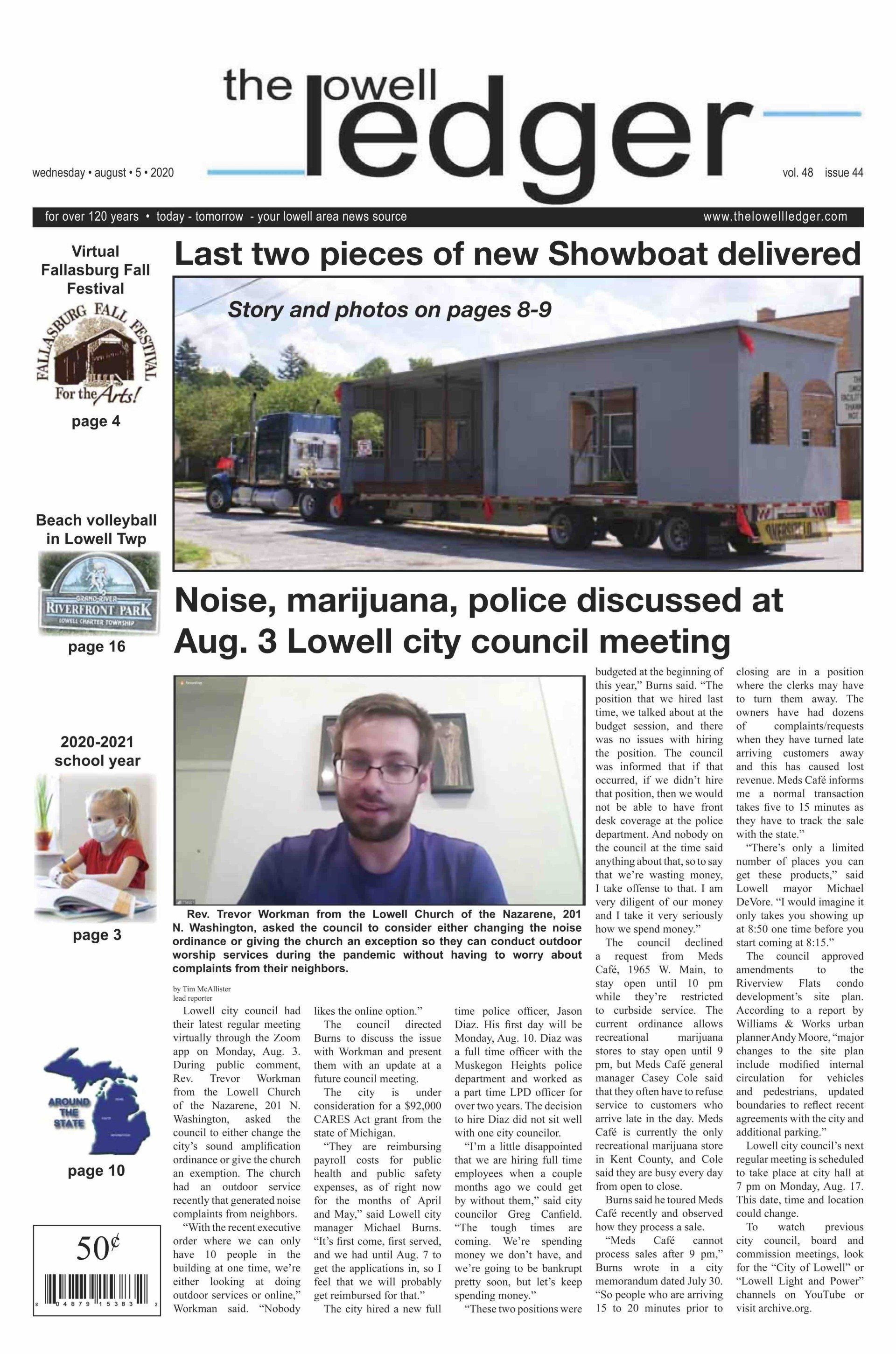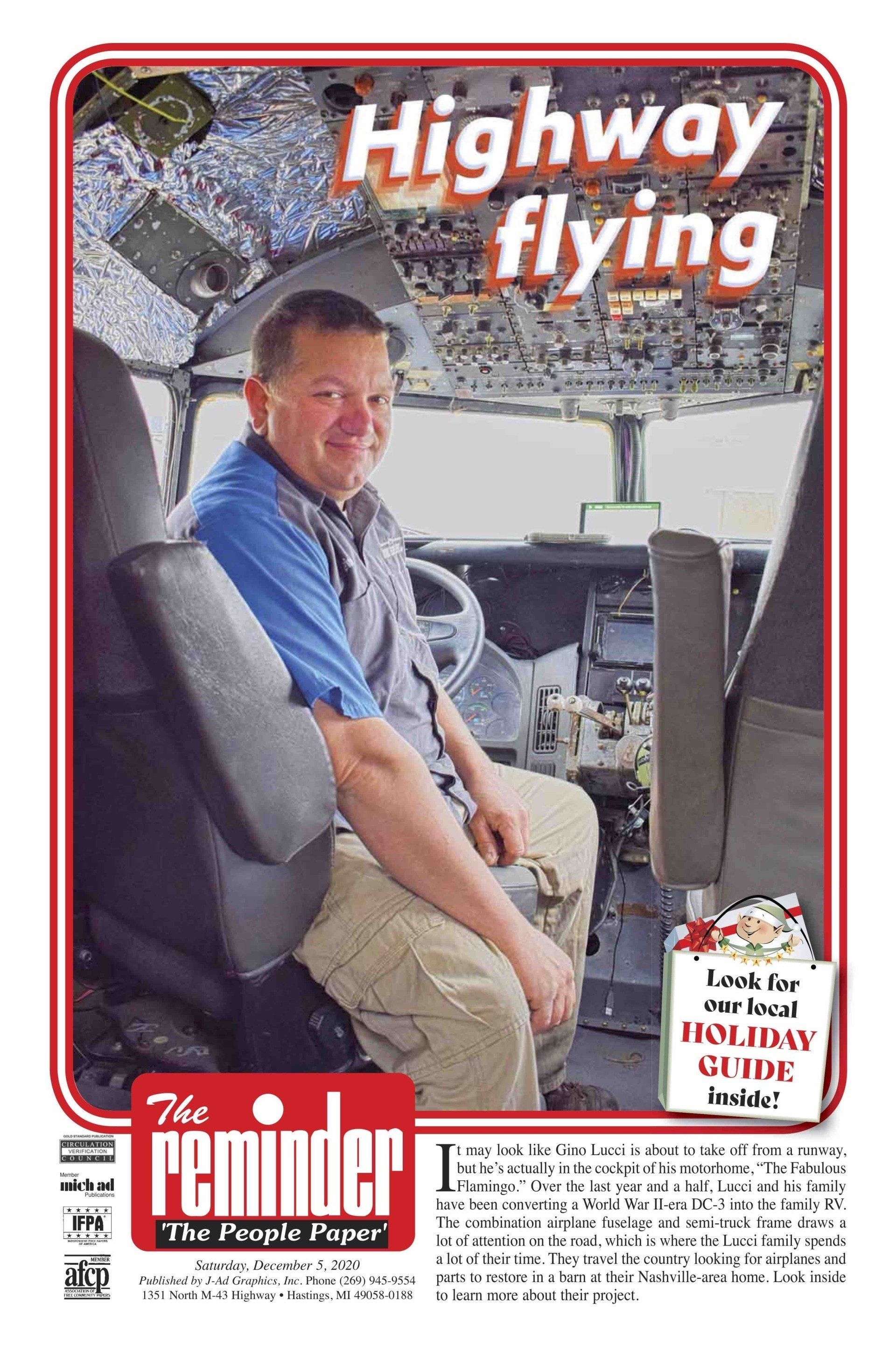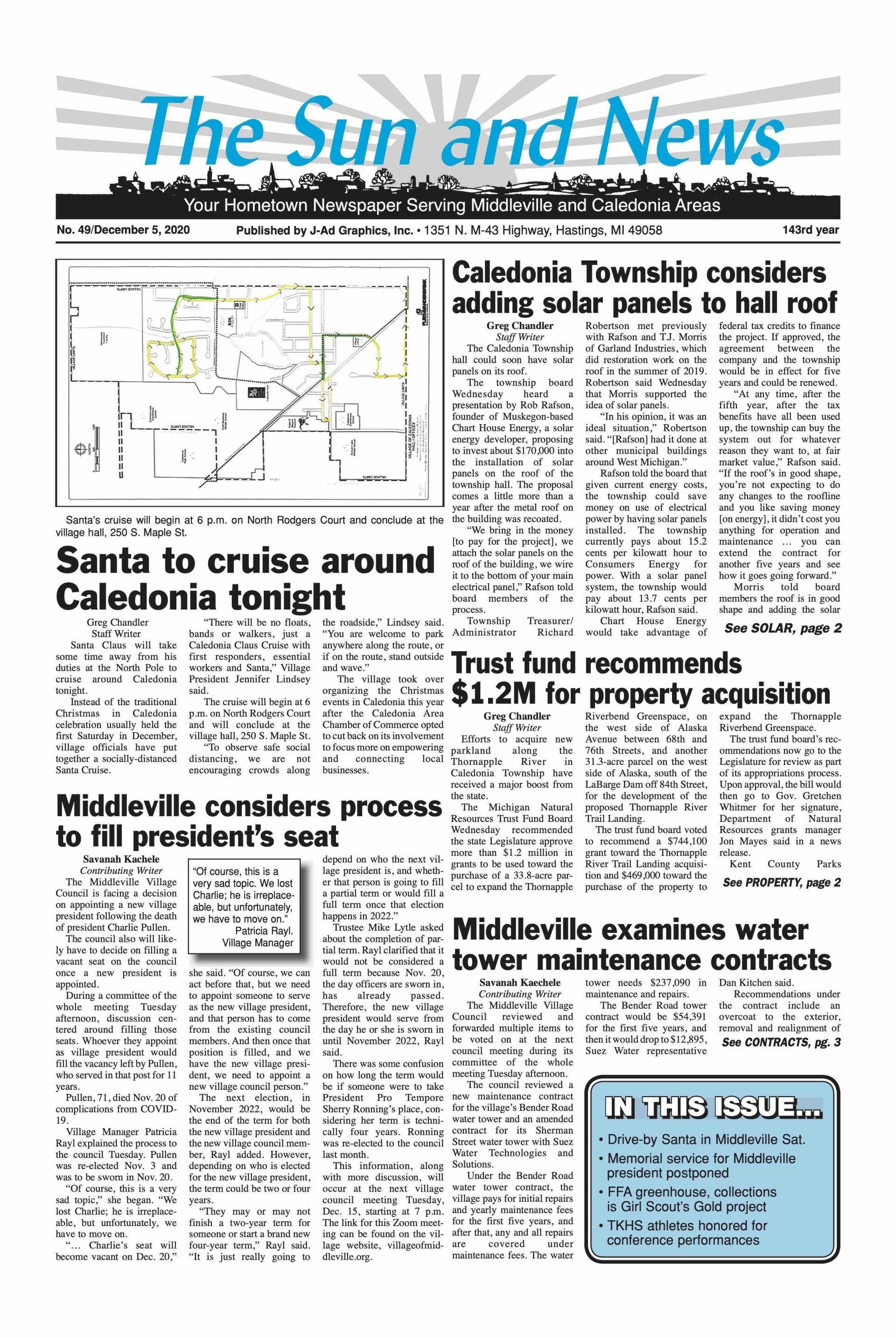Election officials prep to keep voters, poll workers safe from virus
Count on 6 feet of social distancing in any waiting lines.
Masked election workers, possibly also wearing plastic face shields, will be sitting behind Plexiglas “sneeze guards” when possible.
Bottles of hand sanitizer will be scattered throughout precincts Tuesday for use by workers and by voters after they've deposited their state primary ballots in the counting machines. Sanitizer should be used after casting ballots to help avoid the possibility of gumming up tabulators with wet folders or ballots.
Pens voters use to fill in ballot ovals will be sanitized with wipes or disinfectant sprays before being returned to use. If they prefer, voters may bring their own blue or black ink pens to use at the polls.
On Tuesday, in the two precincts in Rutland Charter Township Hall, pens and pencils were already filling coffee mugs labeled “cleaned” with empty “used” mugs sitting next to them this week.
A little more effort and many different supplies are required to host an election in 2020, the year of the global novel coronavirus pandemic. Area election officials say they are doing all they can to prevent in-person voting from contributing to the spread of COVID-19.
Polls will be open from 7 a.m. until 8 p.m. across the state of Michigan Aug. 4. The ten-person indoor limits do not apply to voters coming together to cast their individual vote or to poll workers coming together, as necessary, to count votes at polling places according to Executive Order 2020-160.
Rutland Charter Township Clerk Robin Hawthorne ran home from the office Tuesday afternoon to pick up some packages that had arrived from the state. She unboxed a couple of non-contact, infrared, forehead thermometers and some alcohol wipes. The thermometers are for checking the temperature of her workers, not voters.
Hawthorne had those supplies shipped to her home rather than the township office to avoid the chance that they would arrive at the office on Heath Road on a Friday when it's closed. Spray disinfectant, face masks and jugs of hand sanitizer made by Wise Men Distillery on the south side of Grand Rapids arrived in early July. Some supplies in Barry County went straight to the county offices in Hastings for townships to pick up.
Irving Township Clerk Sharon Olson had many matching supplies at her township hall this week, face masks and blue gloves, and a jug of the Wise Men hand sanitizer. Olson also had been making afternoon runs to the post office in Middleville to make sure absentee ballots get out in a timely manner for those who requested them.
Officials in Rutland and Irving townships are both still hopeful that promised floor signage discs, to designate the proper 6-foot social distancing requirement, will arrive before voters start showing up at the polls for Tuesday's Michigan primary elections. For now, Olson is keeping the blue tape “Xs” in place 6 feet apart on the floor in the Irving Township Hall.
The Caledonia Township officials are making up their own floor signage and, instead, used some election funds to purchase a high-speed letter opener for the nearly 3,800 absentee ballots they're planning to count. Caledonia Township Clerk Joni Henry and Elections Director/Assistant Clerk Stephanie Skidmore are happy to have Plexiglas barriers throughout the office – “sneeze guards” made by township Treasurer Richard Robertson before the office reopened for business this summer.
Vermontville Township Clerk Rita Miller ordered Plexiglas shields to place in front of the election workers, but has been told they are on back order. She said she doesn't know whether she will get them in time for this election. Vermontville isn't the only area township waiting for Plexiglas barriers from the state to arrive.
“I think there's kind of a shortage on the Plexiglas,” Miller said.
Miller managed to get plenty of pens so workers at the Vermontville Township Fire Department polling station won't need to be sanitizing pens one after another all day.
Thornapple Township Clerk Cindy Wilshire said her message to voters arriving at the polling place is: “The pen that we give you when you fill out the application will be the pen you’ll fill out the ballot with.”
Wilshire said they plan to sanitize polling booths between voters; masks will be provided for those who want one; and workers will wear masks and gloves.
Yankee Springs Township Clerk Janice Lippert said a cleaning company will clean and sanitize both precinct locations – the township hall on Briggs Road and the fire station on M-179 – Monday, the day before the election.
Many voters are choosing to avoid polling places entirely, and are mailing in or delivering their own absentee ballots. Those absentee ballots must be received by the close of polls Tuesday to be counted.
Skidmore, in Caledonia, said absentee voters who have not already returned their ballots should drop them off at the township office in these final few days before the election rather than relying on the postal service to have them delivered by 8 p.m. Tuesday.
“Voting will be the same as always, the polling place might look a little different due to trying to keep distancing rules in place as much as possible,” Hawthorne said.
She also wants the public to be aware that “the Bureau of Elections and the Secretary of State has asked and recommended that the restrooms be closed to voters on Election Day for COVID reasons – that is one big thing that will be different for those that are coming to the polling place. So, voters should plan accordingly.”
Hastings Charter Township will be doing all the cleaning, sanitizing and social distancing that is being done at other townships.
Hastings Clerk Anita Mennell is one of a few clerks that has reported her township will use a scan gun to read voters' driver’s licenses, rather than swiping them through a card reader, to avoid one more point of contact between voters and poll workers.
“I've got quite a few calls from people saying, 'Will you have in-person voting?'” Castleton Township Clerk Marcia Scramlin said.
Scramlin tells them yes, and it won't even be that different from a usual Election Day. She said her polls will have the same number of employees and the same number of voting booths as usual.
Election officials are doing what they can to keep voters safe – and they're hopeful voters will do their part.
Gov. Gretchen Whitmer's Executive Order 153 states that “wearing a mask at a polling place for purposes of voting in an election is not required, though wearing a mask to protect yourself and others is strongly encouraged.”
“Wearing a mask is the right thing to do to protect our families, our businesses, and our economy,” said Whitmer in a July 17 press release accompanying the executive order. “If everyone in Michigan masks up, we can save thousands of lives and put ourselves in a better position to send our kids back to school in the fall.
“For the safety of our loved ones and our dedicated first responders on the front lines: Mask up, Michigan.”
“COVID-19 is far from over – people are still getting sick and dying,” said Katie Scott, R.N., vice president of the Michigan Nurses Association, while following up on Whitmer's statement. “As a nurse, I'm worried that many people are not taking the pandemic seriously enough. Don't wait until COVID happens to you or a loved one to take action. Wearing a mask is a simple step that protects everyone.”
“I wish people would wear masks to protect themselves,” Barry Township Clerk Debra Knight said.
Voting will look a bit different in Knight's township. Instead of having residents vote in the Barry Township Hall, they will use the fire barn in Delton this time around.
“There is more room for social distancing,” Knight said of the location change.
That polling location will offer only one entrance and exit. So residents coming to vote are expected to use common sense when lining up to vote outside by keeping their distance, a sentiment shared by township officials across Barry County.
“I’m going to use cones, but I’m worried about having to continually wipe down the cones if people touch them,” Knight said.
Knight added that she has received very little guidance from the state as to how to prepare for elections.
“If people are more comfortable with bringing their own pens they can, but I have someone whose only job is to go around and wipe everything down and clean,” Knight said.
Currently, Barry Township has sent out 671 absentee ballots. Four years ago, it sent out fewer than 200 absentee ballots.
“There are some people that will go the polls, no matter what,” Knight said. “That’s their God-given right and no one's taking that away from them. We’re going to make sure everyone is as safe as possible.”
Hawthorne said she doesn't foresee long lines at the polls, given the number of absentee votes expected.
Absentee voting has experienced a massive uptick across the area this year. Due to the passage of the statewide ballot Proposal 18-3, all eligible and registered voters in Michigan may now request an absent voter ballot without providing a reason.
And voters can still request AV ballots in person. Requests for AV ballots by mail had to have been received by clerks no later than 5 p.m. the Friday before the election.
Clerks are required by the state to be available for at least eight total hours the Saturday/Sunday before Election Day to issue and receive absent voter ballots. But voters who request AV ballots the day before or day of an election must cast their ballots in the clerk's office.
In Rutland, a township that's home to roughly 3,100 voters, almost 800 AV ballots were sent out. Hawthorne said, for a typical Election Day like the one ahead, she might have 250 absentee voters of about 800 total ballots cast.
It will be a busier day than normal for those tallying ballots from absentee voting. They must be sequestered away from the rest of the process as they do their count. Henry and Skidmore plan to get their AV workers going at about 8:30 a.m. at the township office after making sure of a smooth start at their township's six precincts.
“A few years ago, we were at 600 AV voters. Now we're close to 3,700. We have received 56 percent of those ballots back already,” Skidmore said. “We still have a lot of ballots yet to come in, so we decided to utilize our funds that the state provided us [on a high-speed letter opener] to ensure that our AV counting board could meet the needs of the high volume of ballots that will be coming back in.”
Henry said Caledonia Township has already had more ballots turned in by absentee voters than it would typically get from all the absentee and in-person votes combined during a typical primary election like this one.
Olson reported Wednesday that she has sent out 606 absentee ballots in Irving Township and has already received 272 back. There are nearly 2,700 registered voters in Irving Township. In 2016, Olson sent out 126 absentee ballots for the primary election and, of those, 101 were returned.
In some less populated townships, like Irving, the AV workers will get started closer to noon Tuesday, but all must remain sequestered until the polls close and all the AV ballots are tallied.
Olson has few concerns about the safety and security of absentee voting.
“I think Michigan elections are pretty hard to hack. I think we have some of the most secure steps in place,” Olson said. “If you're absentee ballot voting, I have to have a fresh signature that I can compare to what I have on record. To me, that is the finger print we're taking when we don't have a face and a photo ID and something to scan. I can look at that signature and it is amazing how much like a fingerprint they are.”
“I think it's going to go pretty smooth,” Miller said of expectations in Vermontville. “We're kind of looking at it as a practice run for November.”
